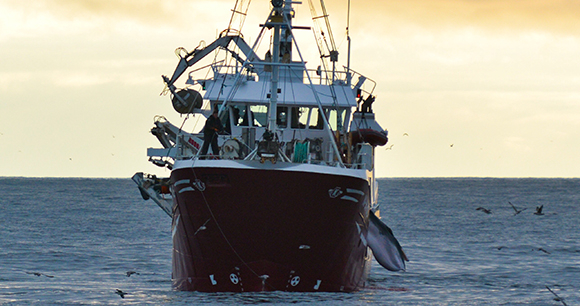
New poll reveals a majority of Norwegians don’t want to eat whale meat and have serious welfare concerns with the hunt.
Oslo, Norway—Norwegian whalers killed the highest number of minke whales this season in five years, despite dwindling public appetite for whale meat.
The Norwegian whaling season came to an official close today, with 575 whales killed and 14 vessels participating in the hunt, according to statistics provided by the Norwegian Fishermen’s Sales Organization (Råfisklaget). Last year, whalers slaughtered 503 whales.
However, the higher number of whales killed this season is unlikely to drive increased profits for the whaling industry, according to a new poll commissioned by NOAH, Norway’s largest animal protection NGO, the Animal Welfare Institute (AWI), and WDC, Whale and Dolphin Conservation.
Only 2 percent of Norwegians eat whale meat often, down from 4 percent in 2019, according to the recent poll. Among women surveyed, only 1 percent eat whale meat often, while no one under 35 indicated that they eat whale meat frequently. The survey of 1,037 Norwegians, ages 18 to 87, was conducted by Respons Analyse AS earlier this month.
“For an industry that has been struggling for years to build a domestic market for whale meat, these poll results are likely to be a painful blow,” said Susan Millward, director of AWI’s marine animal program. “Despite millions of kroner spent on marketing programs over the past two decades—bankrolled, in part, by the Norwegian government—Norwegians are clearly not interested in eating whale meat.”
“This is nothing short of ecocide,” said Vanessa Williams-Grey, policy manager at WDC. “Killing hundreds of minke whales is utterly inexcusable, especially given the essential role they play in our oceans. Whales are our allies in the battle against climate change.”
The poll revealed that Norwegian citizens have serious concerns about how the hunts are conducted. For example, nearly two-thirds of respondents agreed that it is unacceptable that almost 1 in 5 whales do not die instantly when shot by a harpoon; 63 percent found it unacceptable that two-thirds of the whales killed are female, nearly half of whom are pregnant.
“Whales continue to endure excruciating deaths from grenade harpoons. It is completely unacceptable that 18 percent of hunted whales do not die instantly and are left to suffer,” said Dr. Siri Martinsen, veterinarian with NOAH. “These poll results clearly show that whale welfare is a major consideration for Norwegians.”
The survey also found that most Norwegians believe that whaling should be prohibited in areas that are important for tourism. This question received a particularly strong response from young people ages 18 to 24; 71 percent felt that Norway should create “no-whaling“ zones similar to those established in Greenland and Iceland. In recent years, vessels in sight of tourists reportedly killed whales near Svalbard. In May, locals complained about whaling along the coast in Vardø, a popular tourism destination.
“Live whales can play an important role in Norway’s tourism economy, as Iceland and Greenland have already recognized by creating sanctuaries for whales in areas that host responsible whale watching and other ecotourism activities,” said Millward of AWI. “We urge the new Norwegian government to listen to its citizens, and establish similar whaling-free zones, especially in key tourist areas such as Svalbard and Finnmark.”
- Marjorie Fishman, Animal Welfare Institute
[email protected], (202) 446-2128 -
Siri Martinsen, NOAH
[email protected], +47 95944499 -
Danny Groves, Whale and Dolphin Conservation
[email protected], +44 (0) 1249 449534 or +44 (0)7834 498277
The Animal Welfare Institute is a nonprofit charitable organization founded in 1951 and dedicated to reducing animal suffering caused by people. AWI engages policymakers, scientists, industry, and the public to achieve better treatment of animals everywhere—in the laboratory, on the farm, in commerce, at home, and in the wild. Follow us on Facebook, Twitter, and Instagram for updates and other important animal protection news.
NOAH, Norway’s largest animal rights organization, was founded in 1989 and is based on the principle that all animals deserve freedom and respect. NOAH is working against animal exploitation in the farming industry, entertainment industry, in laboratory research, and more by spreading information to the public, arranging protests, lobbying, and campaigning. The organization is also dedicated to protection and conservation of wild animals.
WDC, Whale and Dolphin Conservation, is the leading global charity dedicated to the conservation and protection of whales and dolphins. We defend these remarkable creatures against the many threats they face through campaigns, lobbying, advising governments, conservation projects, field research, and rescue.